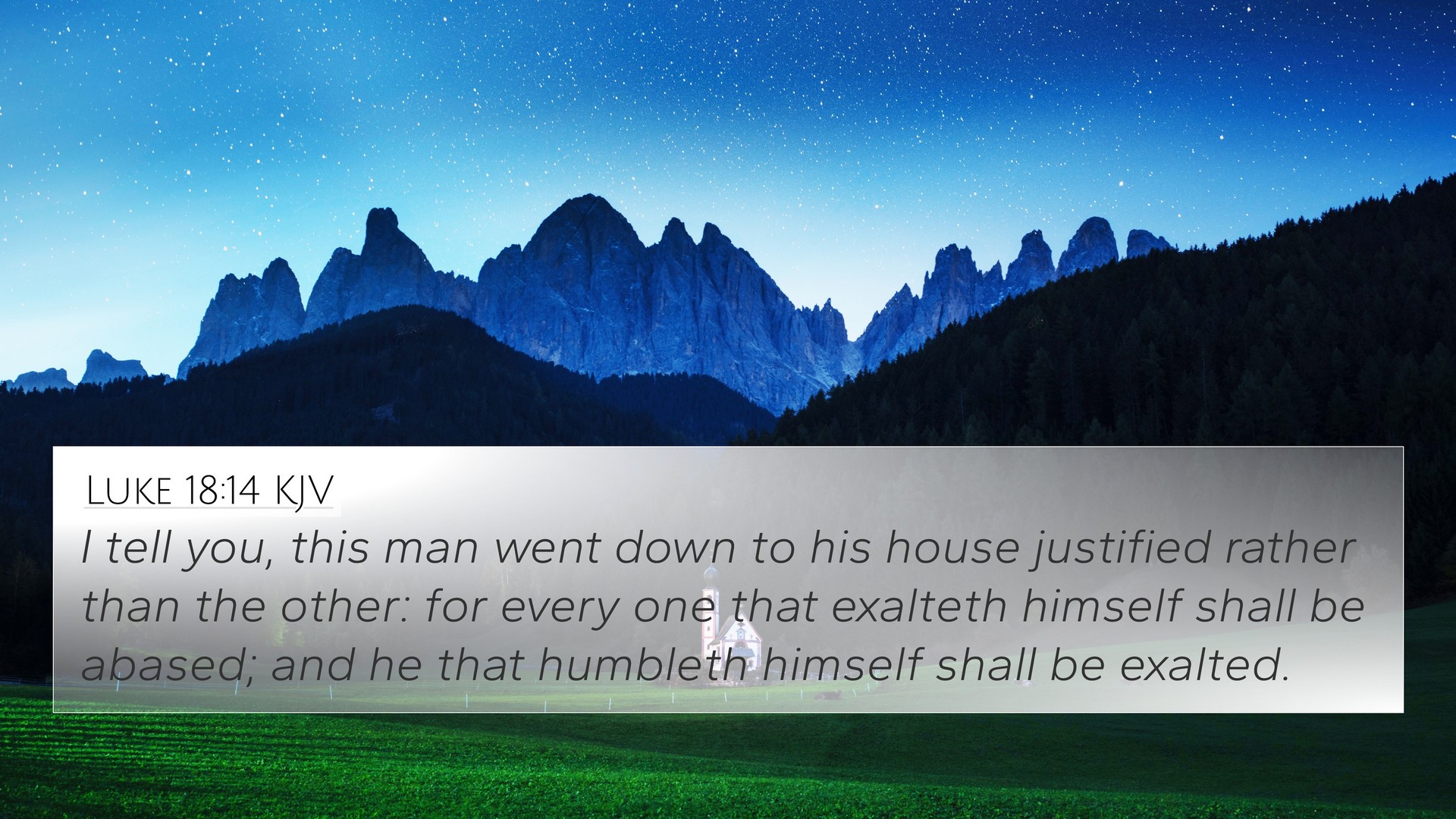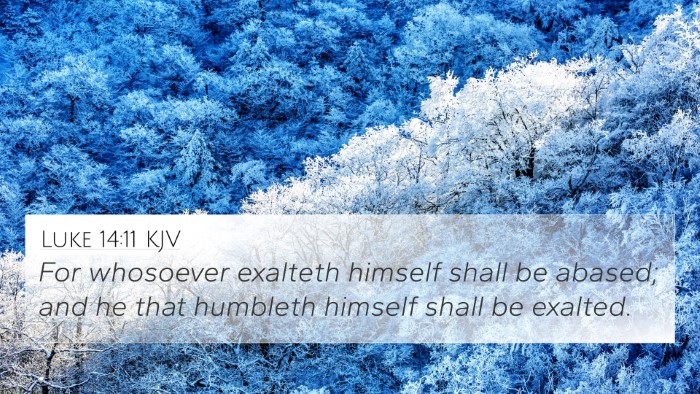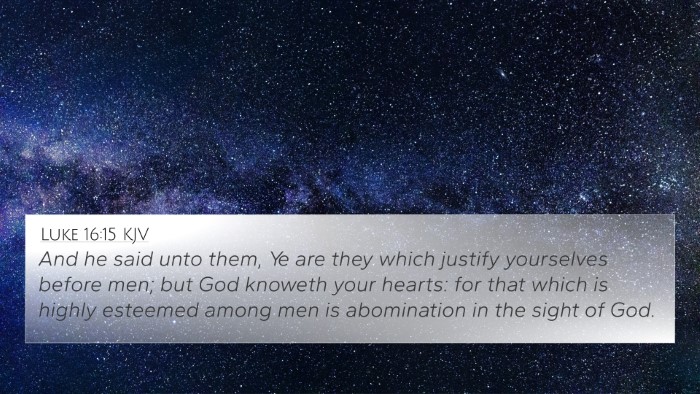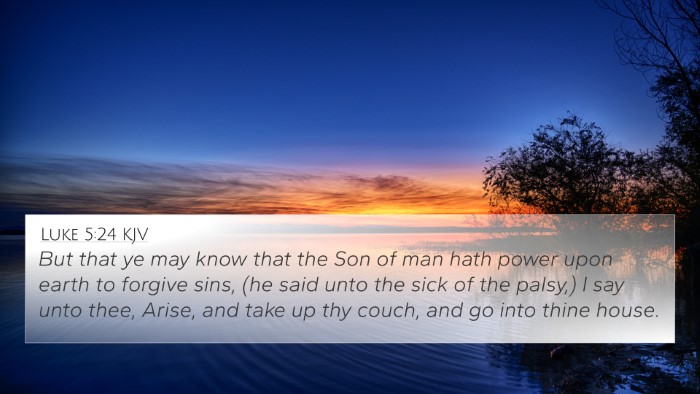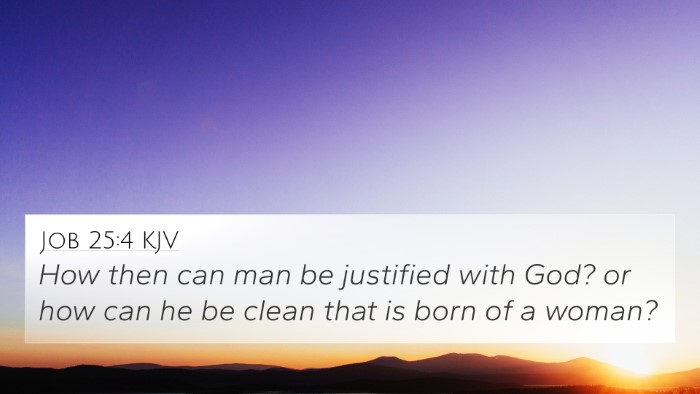Understanding Luke 18:14
Luke 18:14 states: "I tell you, this man went down to his house justified rather than the other: for every one that exalteth himself shall be abased; and he that humbleth himself shall be exalted."
This verse encapsulates key themes of humility and justification before God, contrasting the self-righteousness of the Pharisee with the humility of the tax collector. Below is a detailed explanation of its meaning drawn from various public domain commentaries.
Verse Analysis
1. Context of the Verse
This verse comes from a parable Jesus tells of two men who went to the temple to pray: a Pharisee and a tax collector. This setting is vital for understanding the implications of their prayers and the heart attitudes behind them.
2. Humility vs. Self-Righteousness
Humility is a central theme in this verse. The tax collector recognizes his sinfulness and asks God for mercy, demonstrating a humble heart. In contrast, the Pharisee is proud and self-righteous, thanking God that he is not like other men. Through this, Jesus teaches that God values a contrite spirit over ostentatious displays of righteousness.
3. Justification
The concept of being justified is crucial here. Justification refers to being declared righteous in the sight of God. The tax collector’s penitent prayer grants him this status, showing that acknowledgment of one's sin and a plea for mercy is the path to justification.
Matthew Henry notes that the term "justified" here highlights the reversal of expected social norms; the despised tax collector receives God’s favor while the esteemed Pharisee does not.
4. The Principle of Exalting and Abasing
This verse concludes with a profound spiritual principle: those who exalt themselves will be humbled, while those who humble themselves will be exalted. Adam Clarke comments on this principle, emphasizing that God's kingdom operates on a different paradigm than that of the world, where the last shall be first, and the proud will fall.
Bible Cross-References
To further elaborate on the themes of humility and justification, the following Bible verses relate closely to Luke 18:14:
- James 4:6: "But he giveth more grace. Wherefore he saith, God resisteth the proud, but giveth grace unto the humble."
- Matthew 23:12: "And whosoever shall exalt himself shall be abased; and he that shall humble himself shall be exalted."
- Isaiah 57:15: "For thus saith the high and lofty One that inhabiteth eternity, whose name is Holy; I dwell in the high and holy place, with him also that is of a contrite and humble spirit."
- Proverbs 3:34: "Surely he scorneth the scorners: but he giveth grace unto the lowly."
- Romans 3:20: "Therefore by the deeds of the law there shall no flesh be justified in his sight: for by the law is the knowledge of sin."
- 1 Peter 5:5: "Likewise, ye younger, submit yourselves unto the elder. Yea, all of you be subject one to another, and be clothed with humility: for God resisteth the proud, and giveth grace to the humble."
- Luke 14:11: "For whosoever exalteth himself shall be abased; and he that humbleth himself shall be exalted."
Conclusion
The moral teachings from Luke 18:14 resonate profoundly with numerous scriptural themes and offer deep insights into the character of God. By recognizing the connections between Bible verses, we uncover a rich tapestry of spiritual truths that encourage humility and dependence on God's grace.
In studying Biblical texts, tools for Bible cross-referencing can greatly enrich your understanding. Resources such as a Bible concordance or a Bible cross-reference guide enable deeper engagement with the scriptures and facilitate the discovery of links between Old and New Testament teachings.
Further Study
To fully grasp the significance of humility before God, consider reflecting on the following:
- How do other scriptural themes of humility inform your understanding of faith?
- What practical steps can you take to foster humility in your life?
- In what ways does understanding justification shape your relationship with God?
Incorporating comparative Bible verse analysis, we can appreciate how different passages inform one another, illustrating that God’s kingdom values humility, mercy, and a contrite heart over self-righteousness.
